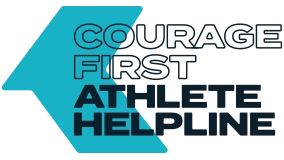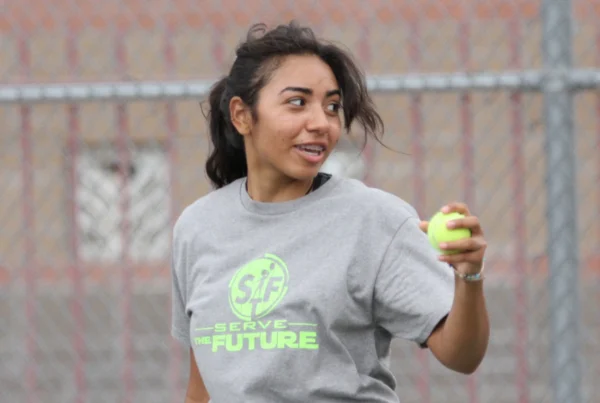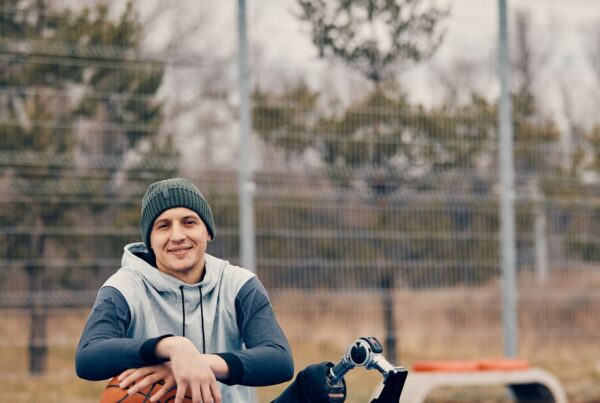Guest Writer: Lori Okimura, President of World ParaVolley and Former Trustee of Safe Sport International
There is a statistic from researchers affiliated with Safe Sport International that is burned into my brain. “75 percent of people in sport experience some type of abuse.”
I think about this statistic quite often because it seems like I have met so many of them. A few years ago, I was fortunate to receive a call from Isabel Cathcart at the Foundation for Global Sports Development/Sidewinder Films. She shared this exciting new project in cooperation with Childhelp, an organization that, since its inception in 1959, has helped more than 13 million children. The project was called The Courage First Athlete Helpline. Little did I know then that this project would make such a significant impact so quickly in my sports circle.
The Courage First Athlete Helpline went live in October 2022. That same month, I made my first referral to 2 collegiate volleyball players seeking help and counseling after being physically and verbally abused by a head coach, enabled by other staff within the athletic department. They were terrified of retaliation and left with no resources after being accused of false reporting.
Speaking with counselors at the Courage First Athlete Helpline helped sort out the options these collegiate athletes had to report the incidents, seek much-needed mental health support, and find any possible ways to escape the abuse. The athletes received valuable information about reporting incidents of abuse and where to seek additional help and support. The value of this helpline has not been fully realized yet. Every sports organization at any level can benefit from sharing the Courage First Athlete Helpline as a main resource for athletes, coaches, parents, administrators, officials, and anyone participating in sports.
Parents and organization directors directed to the helpline find it helpful to share the information on their program websites, through social media, and by good old-fashioned word-of-mouth. It is also beneficial to share contact information with those who may be triggered in conferences, team meetings, and seminars. I mention the Courage First Athlete Helpline during podcasts where the subject matter could be triggering for abuse survivors or listeners. Think about other ways sharing information about this valuable resource can support your athletes and those within your organization. Spreading the word is one of the best ways to help. You never know who needs a moment with a kind and helpful ear and the experience to help protect athletes from further abuse. I have seen firsthand how valuable access to the resources provided by the Courage First Athlete Helpline can be. Though we hope no athlete ever has to use it, www.athleteheline.org is a lifeline for all.




